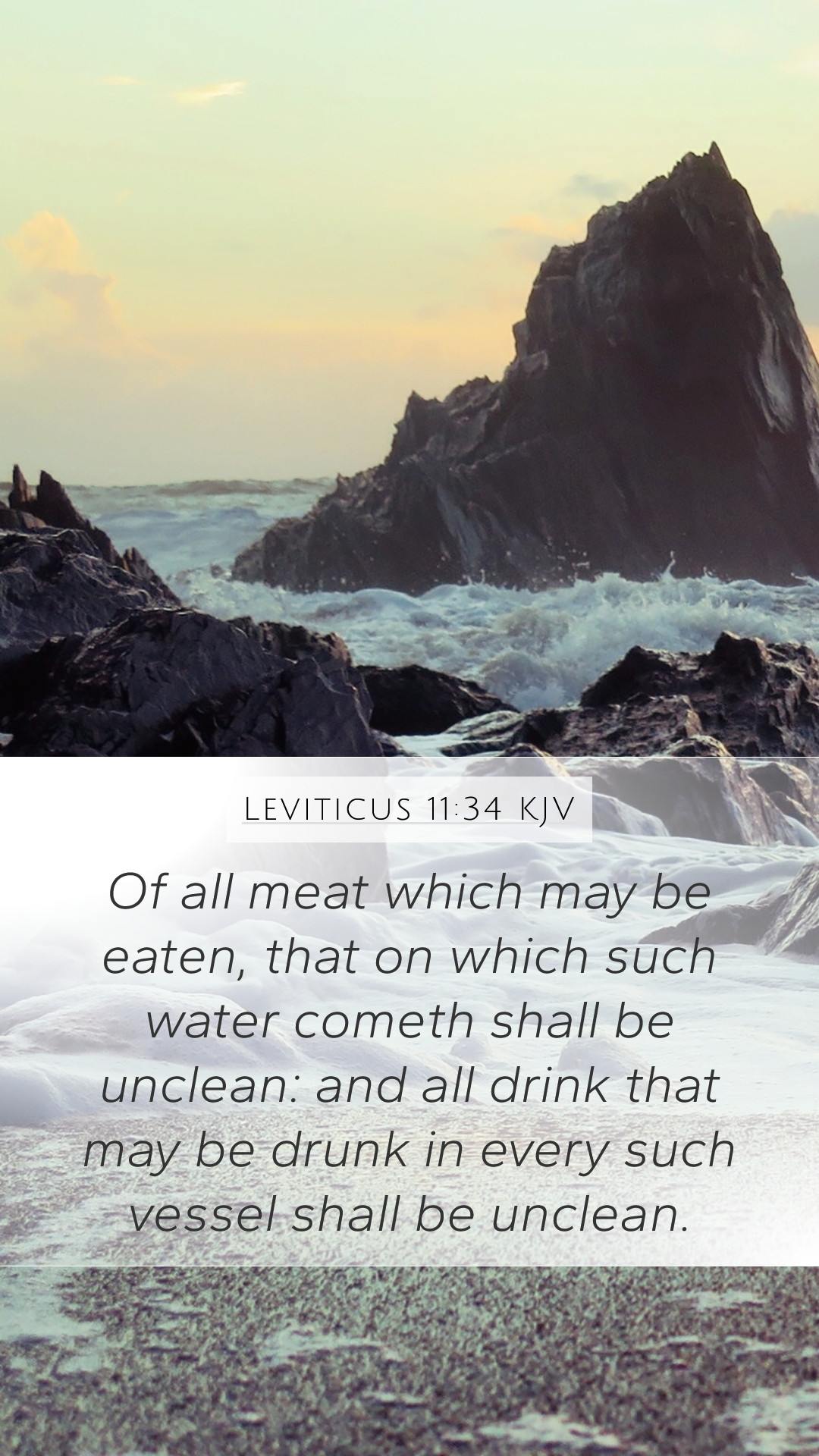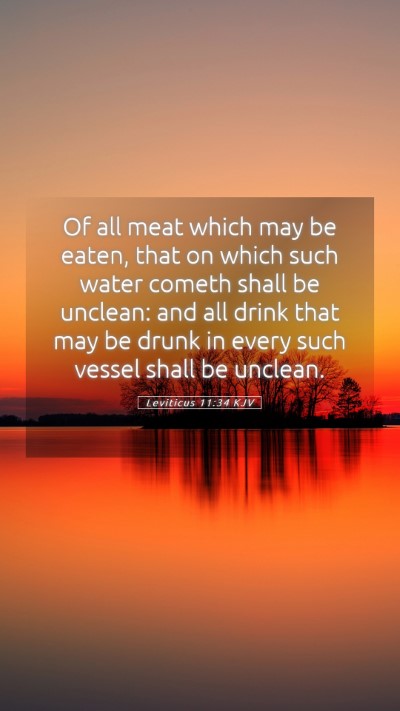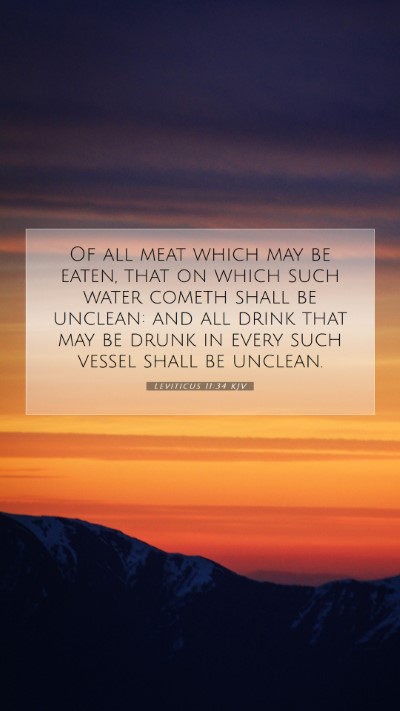Understanding Leviticus 11:34
Bible Verse: Leviticus 11:34
Leviticus 11:34 states, "Of all the food which may be eaten, that which comes from the sea and from the rivers, you may eat." This verse falls under the broader context of clean and unclean animals.
Bible Verse Meaning and Interpretation
This verse highlights the dietary laws given to Israel, particularly concerning the creatures of the water. It emphasizes the principle of cleanliness in what is consumed, which carries both physical and spiritual implications.
Insights from Public Domain Commentaries
-
Matthew Henry: Henry points out that the laws of clean and unclean were intended to teach the Israelites about holiness. By adhering to these dietary restrictions, they were to be reminded of God's purity and their need for separation from the nations around them.
-
Albert Barnes: Barnes explains that this verse serves as a guideline that distinguishes between what is acceptable and what is not. He emphasizes that understanding these distinctions is crucial for spiritual discipline and helps followers cultivate holiness as commanded by God.
-
Adam Clarke: Clarke elaborates on the importance of these dietary laws, stating that they serve as a foundation for the health and ethical practices of the community. He notes that such requirements were part of the covenant relationship between God and Israel, reminding them of their responsibilities as His chosen people.
Spiritual Significance
Leviticus 11:34 carries significant spiritual weight beyond mere dietary regulations. It signals God’s desire for His people to maintain a relationship that transcends everyday living. The teachings encapsulated in this verse encourage introspection into how believers interact not only with their physical sustenance but also with their spiritual nourishment.
Historical Context
The laws in Leviticus were given during a critical time when the Israelites were forming their identity as a nation. Understanding the historical context of these laws allows for deeper comprehension of their meaning. The call to holiness in everyday matters such as food was a foundational element in reflecting their dedication to God.
Application of the Verse Today
For modern readers, the lessons in Leviticus 11:34 extend into applying the concept of holiness in daily decision-making. Believers are encouraged to evaluate their daily choices, recognizing that each one can either draw them closer to God or create distance from His standards.
Bible Study Insights
- When studying this verse, consider the broader implications of God's guidelines in Scripture.
- Discuss in Bible study groups how cleanliness and discipline in various aspects of life relate to one's spirituality.
- Explore how these dietary laws set the stage for understanding New Testament principles of holiness and purity.
Cross References
- Deuteronomy 14:9-10 - Further instructions regarding clean and unclean animals.
- Isaiah 66:17 - A warning regarding unclean acts and their consequences.
- Matthew 15:11 - Jesus clarifies what defiles a person, shifting focus to the heart.
Conclusion
Leviticus 11:34 serves not only as a guideline for what is acceptable to eat but as a profound reminder of the necessity for purity, discipline, and holiness in the life of a believer. Engaging with this verse through the resources of Bible study tools, courses, and discussions can lead to greater understanding and application in daily life.


